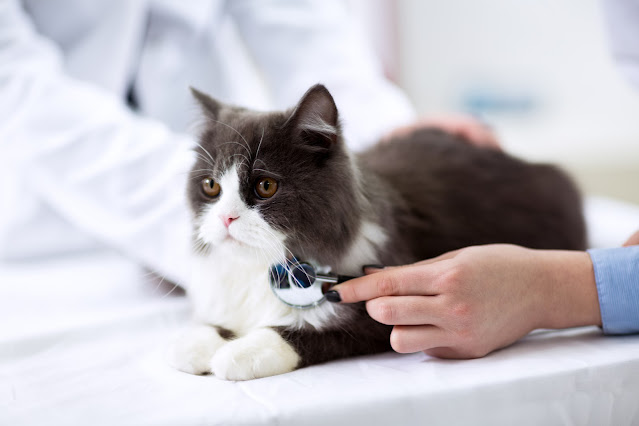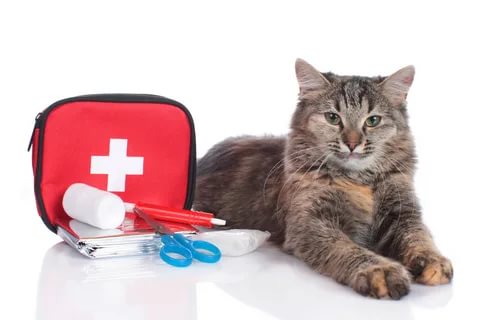After the first year, how often should my cat see the vet?
It is recommended that adult cats see a vet at least once a year for a routine check-up and vaccination boosters.
Some cats with certain health conditions may need to visit the vet more frequently. It's always best to consult with your
veterinarian to determine the best schedule of visits for your cat.
It's also a good idea to schedule regular check-ups for your cat, even if they appear to be healthy.
This is because cats are experts at hiding illnesses and diseases, and regular visits can help your veterinarian
catch any issues early on before they become more serious. Additionally, your vet can provide you with advice on how to keep your cat healthy,
including recommendations for diet, exercise, and preventative care. Overall, regular veterinary check-ups are an
important part of responsible cat ownership and can help ensure that your feline companion stays happy and healthy for many years to come.
It's important to note that kitten should be seen more frequently. They need to have a series of vaccinations starting at 6-8 weeks of age,
and then boosters every 3-4 weeks until they are 16-20 weeks old. After that, they should have an annual check-up and vaccination boosters.
Also, it's important to schedule an appointment with your vet if you notice any changes in your cat's behavior or health, such as weight loss,
vomiting, diarrhea, or difficulty breathing. These could be signs of a serious illness and should be addressed as soon as possible.
In general, it's a good idea to establish a relationship with a veterinarian you trust and feel comfortable with,
and to make sure you have a clear understanding of what to expect during your cat's check-ups and any necessary treatments.
It's also a good idea to keep track of your cat's health information, including their vaccination records and any previous illnesses or conditions.
This information can be helpful for your vet during check-ups, and can also be important in case of an emergency.
It's also good to be aware of the common diseases and health issues that can affect cats, such as dental problems,
heartworm, and feline leukemia, and to discuss any concerns you have with your vet during check-ups.
Your vet will be able to advise you on how to prevent and manage these conditions,
and can also help you create a personalized health plan for your cat.
Lastly, it's important to remember that regular veterinary check-ups, preventative care,
and prompt treatment of any health issues can help prolong your cat's life and improve their quality of life.






Post a Comment